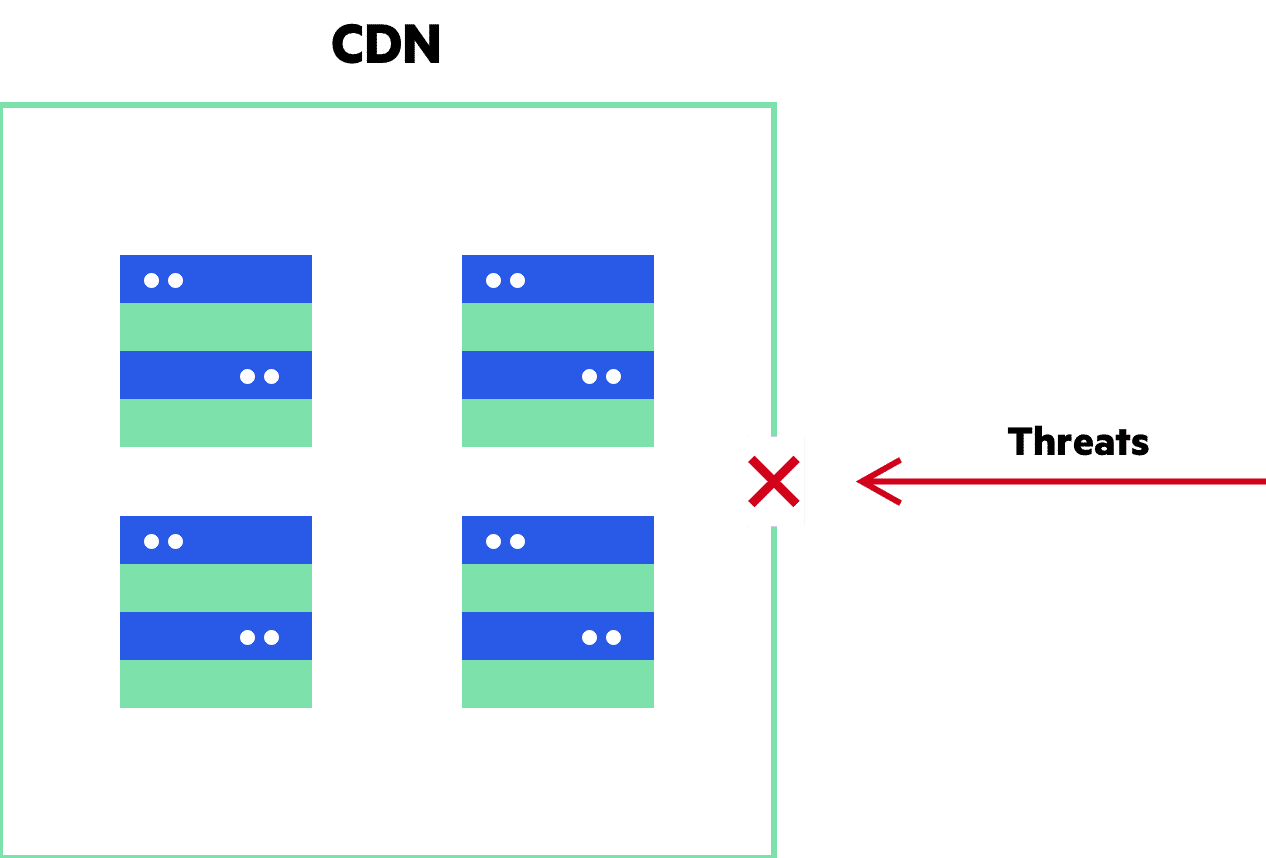CDNs: Ensuring Performance and Security for Online Retail

What are CDNs?

Content Delivery Networks (CDNs) are distributed systems of servers strategically located across the globe. They cache frequently accessed content, such as web pages, images, and videos, closer to end-users. This reduces latency and improves website performance.

Benefits of CDNs for Online Retail:
1. Improved Performance:
CDNs deliver content faster by reducing the distance between the user and the server, resulting in shorter load times and a better user experience.
2. Increased Scalability:
CDNs provide a distributed infrastructure that can handle high traffic volumes, ensuring that online retailers remain accessible even during peak hours.
3. Enhanced Security:
CDNs offer built-in protection against DDoS attacks, malware, and other cyber threats by routing traffic through secure gateways.
4. Lower Costs:
By reducing the load on origin servers, CDNs help online retailers save on bandwidth and server resources.
5. Global Reach:
With servers located worldwide, CDNs enable online retailers to serve customers from any location, regardless of their geographic proximity.
How CDNs Work:
- Caching: CDNs store copies of frequently accessed content on their servers. When a user requests content, the CDN serves it from the nearest cache location.
- Edge Servers: CDNs use edge servers, which are located near end-users, to deliver content with minimal latency.
- Load Balancing: CDNs distribute traffic across multiple servers to prevent overloading and ensure consistent performance.
- Security Protocols: CDNs implement SSL/TLS encryption, DDoS mitigation measures, and malware scanning to protect websites and user data.
Best Practices for Using CDNs:
- Choose a Reliable Provider: Select a CDN with a proven track record, extensive network, and robust security features.
- Configure Cache Settings: Optimize caching policies to balance performance and freshness.
- Monitor and Optimize: Regularly monitor CDN performance and adjust configurations as needed to ensure optimal results.
- Integrate with Other Solutions: Use CDNs in conjunction with other technologies, such as web application firewalls (WAFs), to enhance security.
Conclusion:
CDNs play a crucial role in ensuring the performance, scalability, and security of online retail operations. By leveraging a distributed network of servers, CDNs reduce latency, increase reliability, and protect websites from cyber threats. By implementing CDNs effectively, online retailers can improve customer experience, increase traffic, and drive sales.## Cdns: Ensuring Performance And Security For Online Retail
Executive Summary
The Canadian online retail market is booming, with sales expected to reach $59 billion by 2024. To capitalize on this growth, businesses need to ensure that their websites are both performant and secure. A Content Delivery Network (CDN) can help businesses achieve both of these goals.
Introduction
A CDN is a network of servers distributed across the globe. When a user accesses a website that uses a CDN, the content is delivered from the server that is closest to the user. This can significantly improve website load times and reduce latency.
In addition to improving performance, CDNs can also help to improve security. By caching content on multiple servers, CDNs can help to protect websites from DDoS attacks and other threats.
FAQs
1. What is a CDN?
A CDN is a network of servers distributed across the globe. When a user accesses a website that uses a CDN, the content is delivered from the server that is closest to the user.
2. How can a CDN help my online retail business?
A CDN can help your online retail business in several ways:
- Improve website load times and reduce latency
- Increase website traffic and conversions
- Improve website security
- Reduce bandwidth costs
3. How much does a CDN cost?
The cost of a CDN will vary depending on the provider and the level of service that you need. However, most CDNs offer a range of pricing plans to fit all budgets.
Top 5 Subtopics
1. Improved Website Performance
A CDN can significantly improve website performance by reducing load times and latency. This is because a CDN delivers content from the server that is closest to the user. As a result, users experience faster page loads and a better overall website experience.
2. Increased Website Traffic and Conversions
A CDN can help to increase website traffic and conversions by improving website performance. When users have a positive experience on your website, they are more likely to return and make a purchase.
3. Improved Website Security
A CDN can help to improve website security by caching content on multiple servers. This means that if one server is compromised, the content can still be delivered from another server. In addition, CDNs can help to protect websites from DDoS attacks and other threats.
4. Reduced Bandwidth Costs
A CDN can help to reduce bandwidth costs by caching content on multiple servers. This means that businesses do not have to pay for the same content to be delivered to multiple users.
5. Global Reach
A CDN can help businesses reach a global audience by delivering content from servers located around the world. This can help businesses to expand their reach and increase their sales.
Conclusion
A CDN can be a valuable tool for online retailers. By improving performance, security, and global reach, a CDN can help businesses to attract more customers and increase sales.
Keyword Tags
- CDN
- Online retail
- Performance
- Security
- Global reach
